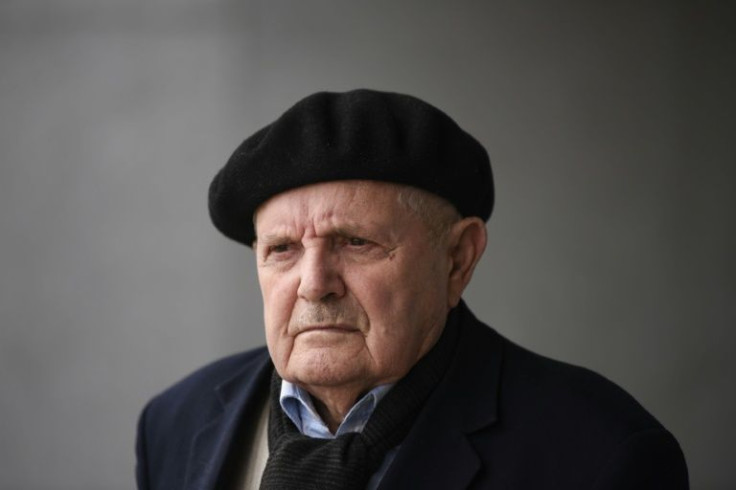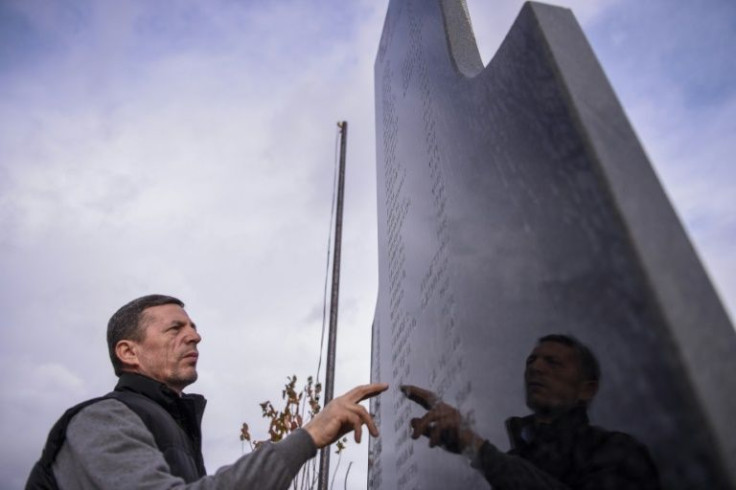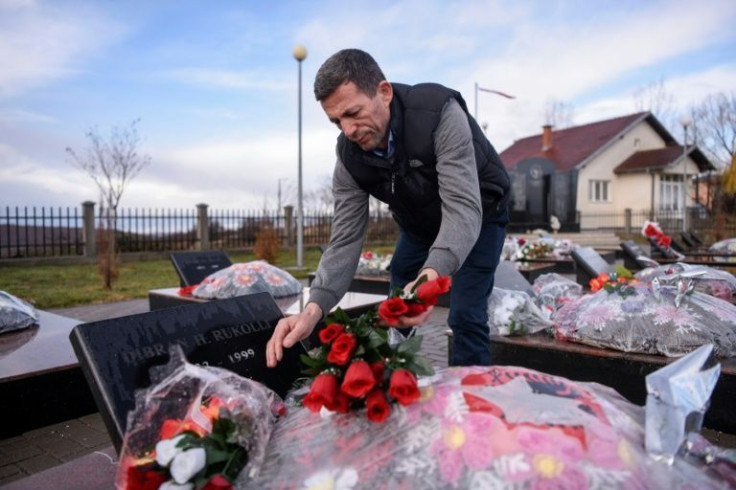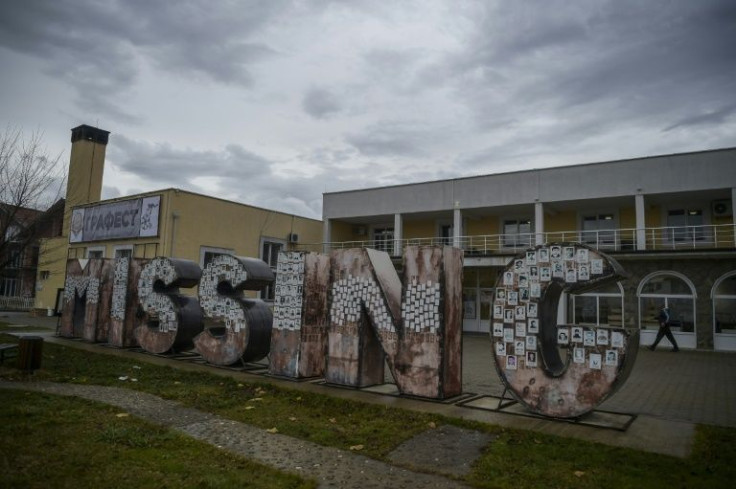'Hope Dies Last': Kosovo Families Haunted By War Missing
More than two decades have passed since war ripped Kosovo apart, but the trauma unleashed by the fighting lingers for Bajram Cerkini and other relatives of those still deemed as missing.
"The war is not over yet in my family," said 82-year-old Cerkini, an ethnic Albanian whose son Reshat is among the missing. "My wife still hears his footsteps and voice at night."
The late 1990s war between Serbian forces and ethnic Albanian guerrillas killed an estimated 13,000 and only ended after NATO intervened.
Thousands more went missing -- many of whom were abducted during bouts of ethnic cleansing and later murdered with their bodies dumped in mass graves, water wells or burnt.

In the years following the war, forensics experts from across the globe descended on Kosovo in a bid to identify remains and return them to their families, as well as to document potential war crimes.
In some cases, just small fragments of bones were recovered and handed over to families.
But not all were found, with 1,625 officially unaccounted for, according to Kosovo authorities.
The fate of the missing is one of many hot-button issues thwarting on-off talks between Kosovo and Serbia since the former breakaway province declared independence in 2008 -- a move never officially recognised by Belgrade.

Kosovo officials continue to lambast Serbia for dragging its feet, often accusing its officials of refusing to divulge the locations of more burial sites.
During the war's final moments, as Serb forces withdrew from Kosovo amid NATO bombing raids, mass graves across the breakaway province were hastily unearthed with the remains trucked back to Serbia to conceal evidence of crimes.

Since the war's end, nearly 1,000 bodies of Kosovo Albanians have been exhumed from sites throughout Serbia -- including hundreds from a mass grave at a special police unit's outpost near Belgrade.
"Trying to hide a crime, they committed another one," said Andin Hoti, the chairman of Kosovo's committee for missing persons -- whose own father remains unaccounted for.
Similar issues have continued to dog neighbouring Bosnia where experts are still trying to locate more mass graves near Srebrenica where an estimated 8,000 Muslim men and teenagers were butchered by Serb forces.
"It's getting harder and harder to find mass graves. We are still looking for more than 1,000 people," said Almasa Salihovic, a spokesperson for the Srebrenica Memorial Center.

In Kosovo, where Bajram Cerkin's NGO Voice of Parents is one of several representing families of the missing, the issue resonates beyond the political sphere.
In the capital Pristina, an art exhibition entitled "A grave is better than not knowing" has sought to capture the pain of the unconsoled, with neon-red digital clocks showing the hours and minutes that have passed since families last saw their loved ones.
The families of the missing "do not want to die without burying their dead" said artist Driton Selmani, the creator of the exhibition.
But even when remains are finally unearthed, new trauma is often triggered.
In October, Vesel Rukolli was informed that remains belonging to his father and uncle had been recovered from a grave months earlier in southern Serbia's Kizevak.
The discoveries came five years after some of his uncle's remains had been found in another village in Serbia.
His uncle had been murdered in April 1999 after Serbia forces massacred nearly 40 people in the village of Rezalle in Kosovo.
As the Serb forces fled the scene, they used a bulldozer to remove the bodies, dismembering many of their victims.
Following the later discovery, the family was forced to disinter his uncle's body to run forensics tests before burying him for a second time.
"It was burdensome. Very wearing," Rukolli sighed, as he adjusted a wreath on his uncle's grave.
And while most of those killed and missing from the war are ethnic Albanian, many Serbs are still unaccounted for -- a point Belgrade frequently raises in its war of words with Kosovo officials.
Officials in Pristina insist they are taking the matter seriously, with five undisclosed locations in Kosovo being excavated in the search for Serb victims of the war.
For over 22 years, Svetlana Marinkovic has been waiting for word about her husband's fate after he disappeared just days after the conflict ended.
"Maybe tomorrow we will find out," Marinkovic told AFP from her home in the Serb town of Gracanica.
"The hope dies last."
© Copyright AFP {{Year}}. All rights reserved.





















